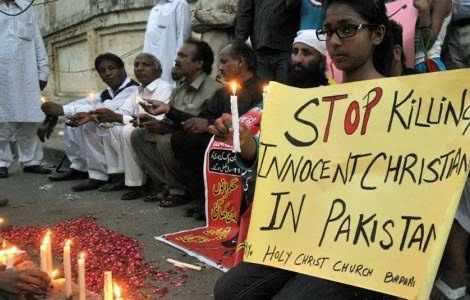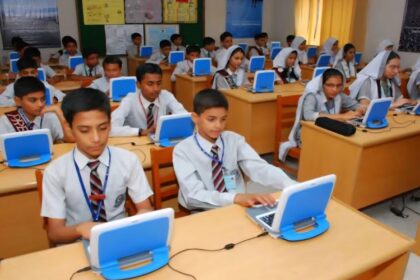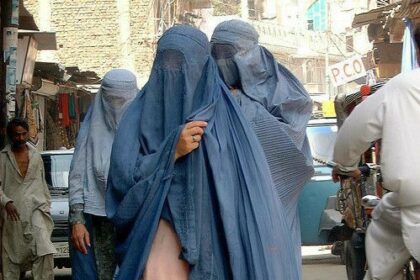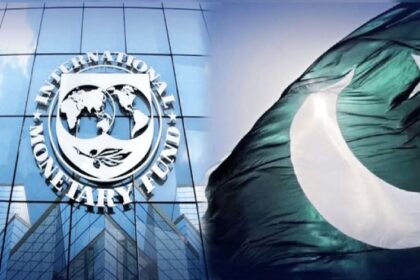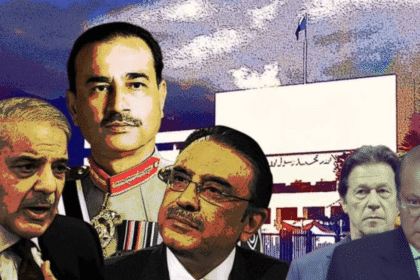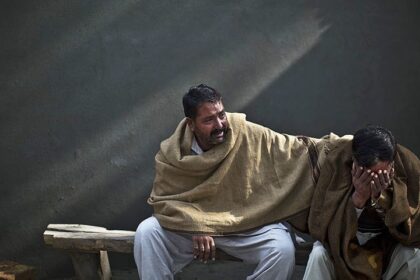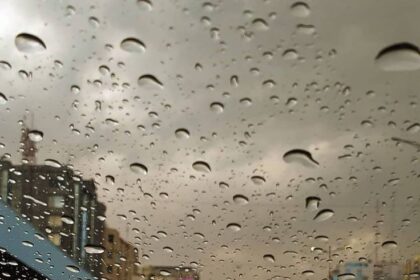In Pakistan, minorities are not just second-class citizens—they are sacrificial pawns in a system that thrives on bigotry, religious intoxication, and the high that comes from chasing the people’s will in the name of God’s will. Growing up, I never truly understood this social divide, which manifested in cheap comments like a certain faith’s followers smelling bad or the ‘harmless’ jokes every young class subjected toward the history books the first time they saw a statue of Buddha or, worse, the Hindu deities.
No one ever asked Muslims why they got offended when Rangila Rasul came out in pre-partition India, when Salman Rushdie’s The Satanic Verses made headlines with an assassination attempt over him, or when the Charlie Hebdo shootings happened over a mere caricature. No one questions the weakness in faith that draws Muslims to take up arms against any and all offenders. Is the foundation of Islam so fragile that it crumbles under the shadow of cartoons and words?
Religion as a Tool of Power
These are explosive questions—dangerous in a country like Pakistan, where religion is a two-tier construct: the critical part of every citizen’s identity and the conveniently absent narrative in their practices. Religion has been molded to fit into the cracks of the cultural construct, seeping through with the panic of a live lobster on steak—relentless, fiery, ready to combust at the slightest provocation.
In the midst of it all, however, is the damning truth of power politics at play. Being a Muslim no longer safeguards you against these hypocritical mullahs; you must be the best type of Muslim—Sunni, with no Shia tendencies. Take it as an alternate Maslow’s hierarchy, but it progressively gets worse as you move up the pyramid. Anything non-Muslim is placed at the bottom, of course: Christians, Hindus, Sikhs. If you’re an Ahmadi, there’s an extra special spot at the crevice of the bottom too—almost like Pakistan’s Muslims adapted the social structure to their own version of the Hindu caste system.
Spoiler alert: it never ends.
The Exploitation of Anti-Blasphemy Laws
When I first started working on my research on the radicalization of anti-blasphemy laws in Pakistan, there were moments I had to put down the screen to process the gross perpetuation of injustice in its exploitation. A lot of my work involved collaborating with *Voice of Pakistan Minority*, an organization conducting holistic grassroots data collection on minority hate crimes.
The great thing about the institution is the excellent reporting and data analysis reports they put out monthly. The unfortunate thing, on the other hand, is that there’s never a day when my screen is not filled with a new face—victim, minor, girl, Hindu most of the time, region Sindh or Southern Punjab—hanged by a tree or, worse, converted to Islam and renamed Fatima. This practice itself is a reflection of the haggard state of the country, where bureaucratic departments exist only for kickback earnings, yet the conversion to Islam has never been speedier, both in speech and in records.
The Horror of Forced Conversions
A few months ago, a video emerged of a minor Hindu girl, captured by the usual Punjabi gang, raped, tortured, and finally, her nose cut on camera. What prompts individuals—let alone the followers of a peaceful faith—to such extremities will never be usual.
Other times, when kidnappings turn into forced conversions and subsequent marriages to the abductors—old enough to be their fathers, in most cases—they pave the way for a cycle of abuse that is shielded under religious hegemony and authorities complicit in their apathy, refusing to intervene. Any attempt at legislating and penalizing these forced conversions is met with rapid backlash—if it’s not Khadim Hussain Rizvi’s touts, it’s Jamaat-e-Islami—that only points to the terrifying reality of being a minority community in Pakistan.
The irony is uncanny: the same nation that pounds its heads about Islamophobia worldwide turns a blind eye to its own brutal treatment of religious minorities.
The Systematic Persecution of the Ahmadi Community
If the forced conversions and sexual violence represent individual acts of savagery, then the systemic exclusion of the Ahmadi community—from the desecration of their graveyards and mosques to the need for constitutional clarification on their non-Muslim status (a constitution which, by the way, still hasn’t unified on capital punishments for child sexual abuse)—is a state-validated purge.
It is funny that the constitution of Pakistan has the audacity to make Ahmadi practice of faith illegal, yet when the hijab is banned in France or when the Turkish president does not seem to care much about the Palestinian plight, there is an outcry similar to the end of the world.
The Shame of Silence
Pakistan’s human rights crisis is not a matter of isolated incidents but a pattern that is deeply entrenched in its administrative structure. A country like ours cannot claim moral high ground on the international stage when it fails to acknowledge the plight of its own minorities.
There is no honor in silence, and certainly no justice in complicity.
Only shame, for what will follow.






